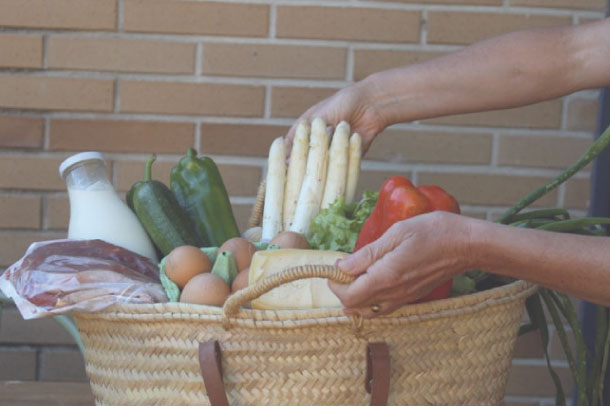
Several reports and regulations recognize the interest of direct sales and short channels as a tool for improving the position of the farmer in the value chain, as well as for accessing to local and more sustainable food by consumers. This is the case of the recently updated Direct Selling Act, the Farm to Fork strategy or the 2020 Eurobarometer.
The unequal distribution of benefits along the food supply chain is a recognized fact. One of the specific objectives of the next Common Agricultural Policy (CAP), specifically the objective number three aims to improve the position of farmers in the value chain. COCOREADO is a project designed to rebalance the position of the farmer in the food supply chain and therefore aligned with this objective.
The document “Farmer position in value chains” [European Commission, (2020)] proposes three main points of action:
- Strengthening cooperation between farmers.
- Improving transparency in the value chain to achieve a fairer distribution of value along the entire chain.
- Development of production models orientated to market, so that the market pays a fair price to agricultural producers, with three actions to be developed:
- Development of differentiated quality branding linked to the territory: products with designation of origin (PDO), or protected geographical indication (PGI).
- Development of organic farming
- Development of local food systems and short supply chains.
The objective of the first point is to improve negotiating capacity in the value chain through producer organizations. However, the imbalance between supply and demand, the more fragile position of the supplier in the case of perishable products and the inherent costs of the organizations mean that the prices obtained by producers often do not cover production costs.
In the second point, Directive 2019/633 on unfair commercial practices must be transposed by the Member States before May 2021 and applied before November 2021. In Spain, the Food Chain Law highlights the importance of developing short marketing channels to increase the benefit of producers and processors.
The third point focuses on production models and their orientation in the market, fostering short supply chains, with special attention to direct selling.
Small farms have a key role in sustaining rural areas by contributing to territorial development, but for this, they need to improve their economic and social conditions. One way to help them in this challenge and provide new opportunities for young people is to include them as important actors of the value chain, boost direct sales, and connect consumers and producers.
To know better the perception of producers and consumers in this issue, different questionnaires were carried out during 2020 in the region of Navarra.
The 33% of farmers said that at some point, they sell directly, 32% sell through a cooperative and 37% through an intermediary, but 49% of those who do not sell directly have thought about doing it. Aspects to highlight:
- Depending on the type of product, it is more or less easy to have assured market through direct sales. Those who sell dairy products obtain a higher percentage of direct selling (80-100%) than those who sell meat products.
- When they were asked if they believe that this marketing model can help them to improve profitability, 44% said yes, 12% said no and the rest did not know or did not answer.
- Finally, when they were asked what they need to increase direct selling, the answers were: a greater involvement of the administration, both in reducing administrative procedures and in making hygiene and sanitary regulations more flexible, as well as the need for investment. They also gave importance to communication and awareness campaigns on this marketing model so that consumers value it.
In addition, a questionnaire was conducted to 600 consumers regarding the perception and evaluation of a possible direct selling brand for the products of Navarre’s farmers and stockbreeders. A high percentage of Navarre consumers think that the idea of creating a specific label of direct selling for Navarra could generate a lot (53.2%) or quite a lot of interest (32.7%).
One of the main barriers they find to participating in direct selling is the lack of knowledge. Where to go, to whom, what products, how… In this sense, having a specific label that allows identifying farmers who sell without intermediaries is very useful for 62.8% of the consumers interviewed.
Cristina Virto – INTIA

